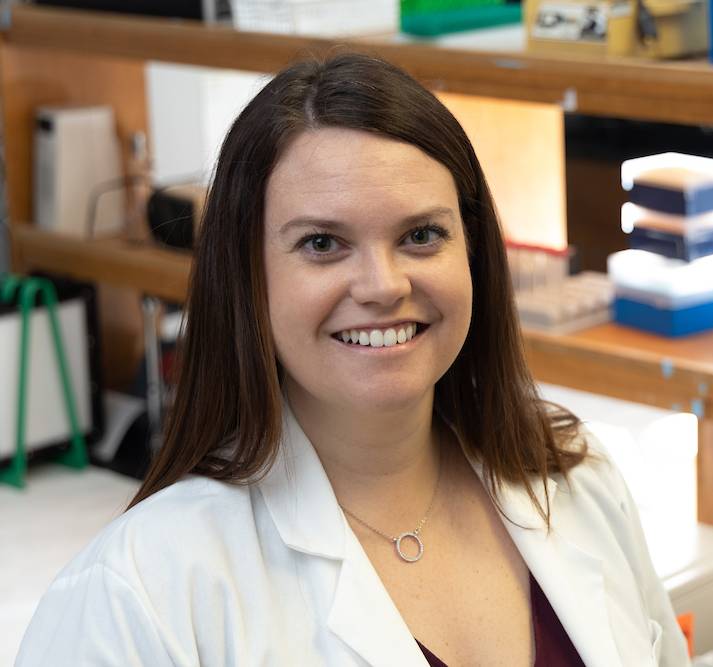
Allyson E. Shea, PhD
Biography
Dr. Allyson E. Shea joined the Department of Microbiology and Immunology in 2023. She received Baccalaureate Degrees in biological sciences and marine science from the University of South Carolina in Columbia and her Ph.D. in molecular biology from the University of Florida. She conducted her postdoctoral fellowship training at the University of Michigan under the mentorship of Dr. Harry Mobley. Her postdoctoral work was focused on the characterization of pathogen nutrient acquisition and transport systems required during UTI.
Research
Host-pathogen interactions during urinary tract infection
Urinary tract infections (UTI) are the second leading cause of infectious diseases
worldwide, affecting nearly 50% of women at least once in their lifetime. More than
80% of uncomplicated UTI are caused by uropathogenic Escherichia coli (UPEC). Antibiotic resistance rates are increasing, creating a dire need for novel
therapeutics. UPEC is genetically heterogeneous, encoding a diverse suite of virulence
factors to promote pathogenesis, making a universal targeted therapeutic difficult
to achieve. The Shea Laboratory studies the bacterial pathogenesis mechanisms of UPEC
(and other Gram-negative species) and the subsequent host response as a model to understand
bladder and kidney infection biology.
One striking feature of UPEC pathogenesis is the rapid bacterial growth rate during
infection; some strains have doubling times as fast as 22 minutes within the host.
Previous work shows that bacterial resource allocation shifts to nutrient scavenging
and catabolism processes during active human infection, potentially driving rapid
growth rate. However, the precise mechanisms by which UPEC utilize and contribute
to this fruitful infection niche are not well understood, especially when considering
growth in ex vivo urine from healthy individuals is not sufficient to facilitate rapid
growth. There are clearly additional nutrients provided in the host during infection.
Given the importance of bacterial nutrient acquisition to fuel uropathogenesis, defining
which host-derived metabolites bacteria utilize and what bacterial mechanisms trigger
their release is necessary to prevent and control UTI.
The objective of the Shea Laboratory is to characterize the nutrient exchange mechanisms
at the host-pathogen interface during UTI, with a specific focus on those host-generated
genetic responses and metabolites that support UPEC uropathogenesis. The central hypothesis
of this work is that host uroepithelial cells are triggered to release excess cellular
proteins during infection, and these serve as nutrients to promote bacterial growth,
metabolism, and virulence. This positive feedback loop of infection will be studied
with the following goals:
1.) Define the host transcriptome during UPEC infection
2.) Elucidate the specific host metabolites released in response to UPEC infection
3.) Define the uropathogenesis mechanisms fueled by the flux of incoming host nutrients
